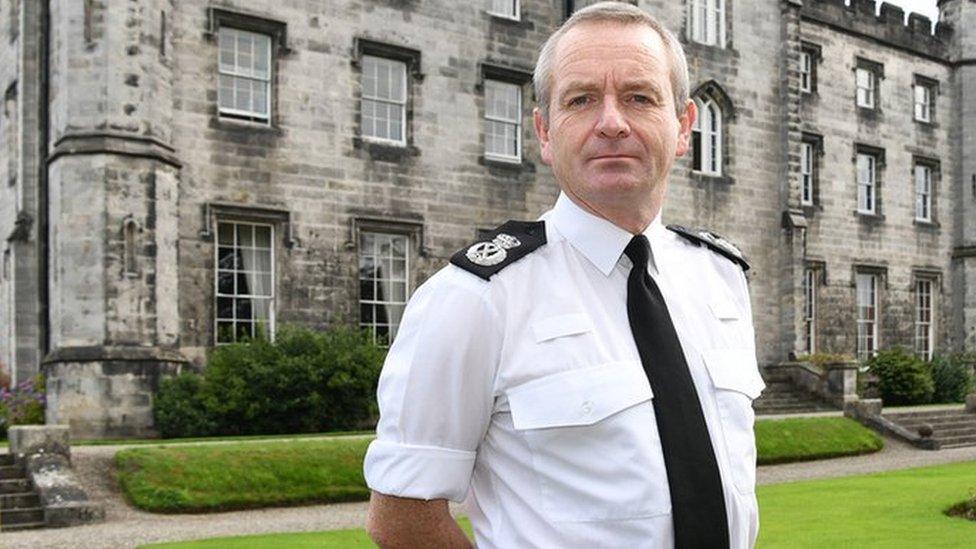New Police Scotland chief agrees force is institutionally racist
- Published
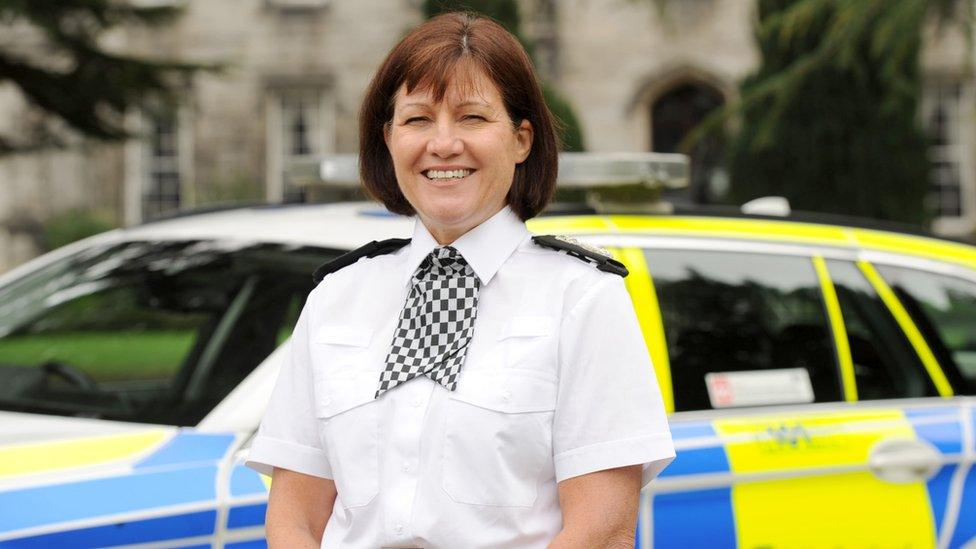
Jo Farrell is the first female chief constable of Police Scotland
Police Scotland's new chief constable says she agrees that the force is guilty of institutional discrimination.
In her first day in the job, Jo Farrell backed the controversial statement made earlier this year by her predecessor Sir Iain Livingstone.
She said it was a "difficult message", but she was determined to drive forward "an anti-discriminatory agenda."
Ms Farrell also promised to prioritise "trust, confidence, high performance and officer and staff wellbeing."
In a statement issued after she was sworn in, the chief constable said: "Having considered Sir Iain's reasons, I agree Police Scotland is institutionally discriminatory.
"I know the acknowledgement of institutional discrimination is a difficult message for many dedicated and honourable officers and staff.
"People with different backgrounds or experiences, including our officers and staff, have not always received the service that is their right.
"The onus is on us to challenge bad behaviour and prejudice, address gaps and eradicate bias, known or unwitting, at every level."
Sir Iain's Livingstone statement in May this year that there was institutional racism, sexism and discrimination in Police Scotland attracted support from many quarters.
However, it was criticised by the Scottish Police Federation (SPF), who felt the reputation of the force was being tarnished because of the faults of a few.
David Threadgold, chair of the federation, said: "The SPF will always work with the service to identify and remove officers in Scotland who fail to live up to our standards of professional behaviour.
"Culture in any organisation is changed from the top down, in this case at governmental level.
"The chief has to work to ensure that the policing budget is given real terms protection to allow us to maintain our current officer and staff profile.
"This relentless stripping of our proud service of physical and human infrastructure has to stop."
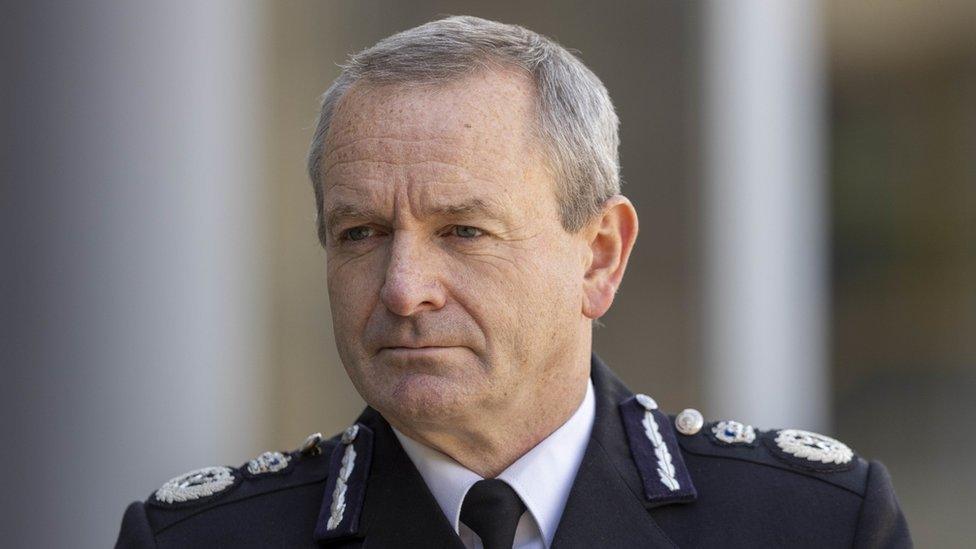
Departing chief constable Sir Iain Livingstone described Police Scotland as "institutionally racist and discriminatory"
Patrick Corrigan, Amnesty International UK's Head of Nations and Regions, said: "The statement made by Sir Iain was honest and stark, but reflected what many already knew and have experienced first-hand.
"The Chief Constable will need to set out what action she intends to take without delay."
Justice Secretary Angela Constance MSP said she was delighted to welcome Ms Farrell, the first woman to lead Scotland's national force.
"There is much to be proud of within the UK's second biggest police service, which is in a strong place as the new chief takes up her role," she said.
"I am sure we will forge a strong partnership, founded on a shared desire to continue the delivery of sustainable excellence within Scotland's police service."
Recruitment freeze
Formerly chief constable at Durham Constabulary, Ms Farrell said her focus was on threat, harm and risk and on prevention and problem solving.
But arriving from Durham - one of the smallest police forces in England - to take charge of the second largest in the UK, the new chief faces immediate challenges.
Police Scotland's finances are under pressure, with a smaller number of officers handling a bigger workload and detection rates for some crimes going down.
There's a freeze on recruitment of civilian staff and a projected £19m budget overspend.
The arrival of 200 new recruits in January has also been postponed.
The force predicts officer numbers could fall to 16,200, the lowest since the SNP took office in 2007.
The Scottish Government said it gave policing a 6.3% increase for the current financial year, Scottish police officers are the highest paid in the UK and, per capita, Scotland has more of them than England and Wales.
Related topics
- Published9 October 2023
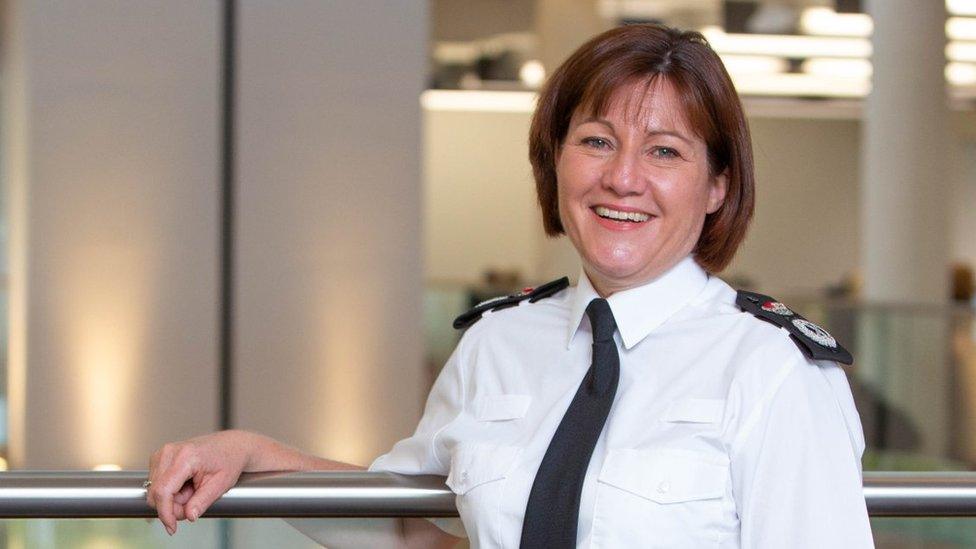
- Published26 May 2023
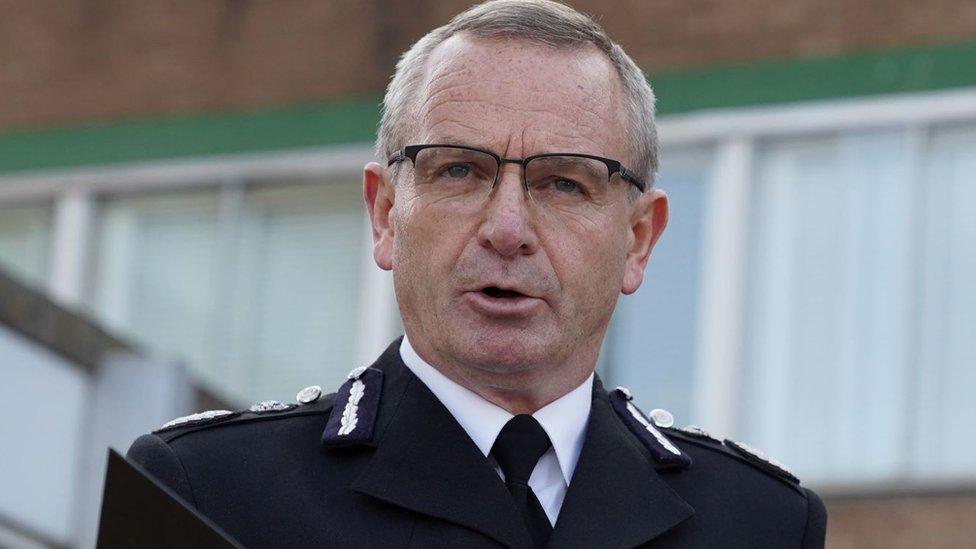
- Published25 May 2023
